Due to COVID19, many of us have found ourselves working from home while simultaneously homeschooling and looking after our children during working hours. Finding balance can be tricky, but LCSW Haneen Ahmad, has joined us to talk about ways we can create balance and care for ourselves while raising young children and working from home. Tune in below to learn more and be sure to check out the links and resources section at the bottom of the page!
Links & Resources
- The Digital SLP Membership
- Boundaries – Book by Dr. Cloud
- Haneen Ahmad Website
- Haneen Ahmad IG Page
Full Transcript of Podcast: Creating Balance While Working From Home & Raising a Family
Episode 69: Creating Balance While Working From Home & Raising a Family
Jessica Cassity: You're listening to the Speech Space Podcast, a podcast full of tips and resources for SLPs. I'm your host, Jessica Cassity, and this is Episode 69. Hey there! Today we are going to be joined by a licensed clinical social worker, Haneen Ahmad. And we will be talking all about creating balance while working from home and raising a family. Before we get started, I did want to let you know that this is the final episode for this school year, but I will certainly be back with more episodes in the fall. I also wanted to let you know that this podcast is brought to you by The Digital SLP membership site, which is a site that features time-saving interactive digital resources that are all teletherapy platform-friendly. This time of year, the doors are generally closed. However, due to the increased need for digital resources right now, I have temporarily opened the doors back up. You can learn more or sign up by going to thedigitalslp.com/digitalslp. All right, let's go ahead and bring Haneen on the show. Hey, Haneen! Thank you so much for coming on the show today.
Haneen Ahmad: Hi, thank you so much for having me. I'm excited to be here.
Jessica Cassity: Yes, yes. I feel like right now we need someone like you to talk to our SLPs about ways that they can take care of themselves amidst the chaos right now.
Haneen Ahmad: Yeah, absolutely. There's so much, so much going on and so many ways that we should be taking care of ourselves. So hopefully we'll get more into those today.
Jessica Cassity: Yeah. Can you give a little background about who you are and what you do?
Haneen Ahmad: Yeah, absolutely. So my name is Haneen Ahmad. I am a licensed mental health therapist based in Seattle, Washington. I work in private practice and I provide one-on-one counseling to women and families in a variety of areas. So anything regarding mental health, but also anything regarding substance abuse.
Jessica Cassity: Okay, great. And you're a mom too, right?
Haneen Ahmad: I am. I have two little ones. They're keeping me very busy.
Jessica Cassity: Yeah.How old?
Haneen Ahmad: A 6-year-old and a 2-year-old.
Jessica Cassity: Okay. Very cool. Very cool. So you know exactly what it's like to find this balance right now, right?
Haneen Ahmad: Absolutely. And I mean, you know, balance is something that you create, right? You don't necessarily find it. And so juggling how to create it has been quite the experience the last three months as we are quarantining and homeschooling and really just everything has kind of been flipped upside down.
Jessica Cassity: Yeah. Yeah. And I love that about balance, the way that you said that that's so true that it's not something that just finds you, right? Because I think sometimes especially as women and you know, you're doing so many things, especially if you're working from home, and you're raising your family and you're trying to achieve this balance thing that everyone's talking about, and you're wondering, why am I? Why am I not? You know, why do I not have this balance? You know, I like that how you pointed out that you really have to create that for yourself. It's not something that's just going to fall in your lap.
Haneen Ahmad: Absolutely. And it can be so trial and error sometimes to figure out what is going to work best for you and what is going to work best for your family and home life.
Jessica Cassity: Yeah. And now you just gave a virtual presentation to a group at Microsoft about this topic. Is that right?
Haneen Ahmad: I did, yeah and it was a group who a lot of them were having to juggle two full-time working parents with their kiddos at home and having to transition to homeschooling them and figuring out new routines and schedules that they needed to set up to be more efficient.
Jessica Cassity: Yeah. That's great. I think everybody needs a lot of that right now. So what are some of the effects that you're seeing on women specifically, due to COVID and all the changes that we've seen in the past few months?
Haneen Ahmad: Yeah. It's really interesting because, the majority of my clients are women. I have just a couple who are more of that young adult, adolescent age group, but most of them are women. Most of them are working moms. And what I've really been seeing is a lot of burnout, a lot of, you know, as moms in general, especially working moms, a lot of responsibility naturally falls on our shoulders. But with all that's been happening, I feel like even more so we've had even more so placed on us, more demands. And so a lot of burnout, I've seen a lot of people withdrawing. And so maybe not reaching out to friends as much or not reaching out to the family as much, even though we hear a lot of talk about, "oh, stay connected." You know, have Zoom meetings and kind of virtual happy hours and that sort of a thing. I've actually seen people withdraw and kind of enter more of that depressed stage. And so I think given that it's extremely important to work on that self-care piece, the setting up a routine piece and really finding that balance at home and creating that.
Jessica Cassity: Yeah. Now in regards to the Zoom meetings, I know it's too soon to have any sort of research on that yet, but what are you finding? Are you finding that people who are doing virtual happy hours and Zoom meetups, do you feel like that's effective or, you know, obviously can't replace socialization, but you know, what are you finding with that?
Haneen Ahmad: Yeah, absolutely. What I hear most is that, "oh, it's so daunting and draining." "I have to set up this meeting and then I have to coordinate it with people," but I always hear, "oh my God, I'm so glad I did that." I left feeling re-energized, rejuvenated, you know, that oxytocin boost kicks in. And so I think people are always appreciative when they actually do attend those. And I always try to encourage clients, you know, try to make it like a consistent thing. Like maybe you do it every other week or maybe you do it, you know, every Saturday night or whatever with your girlfriends or mom friends or whoever. And so I think that consistency piece has been key for them when they, when they do finally connect with other people, kind of outside of their home.
Jessica Cassity: Yeah. I mean, it seems like a reasonable substitute for the time being, so that makes a lot of sense. So what are some things that we can or some advice that we can give to women who are working from home right now and raising their children at the same time? What can they do? What are some kind of practicable, actionable steps that they can put in place?
Haneen Ahmad: Yeah. So, what I've been exploring with people are really five main core steps. And the first one is really meeting your basic needs. I think that's really foundational. You have to take care of that first. Right, we have to take care of ourselves before we can give and take care of others. So making sure that you have adequate sleep, hydration, take your vitamins if you need to, hygiene, kind of that core component to really address those pieces first. And then what I like to get people to jump into next is really setting up a routine and a schedule at home and making sure that you stick to it and you're really consistent about that routine and schedule. And sometimes you have to be flexible, right. So maybe you have a partner at home or maybe you don't and we really have to adjust what expectations are. So let's say usually you have a nine to five, well maybe now your workday starts at five so that you can clear up the afternoon and do homeschooling, or maybe it shifts and your workday doesn't start until 12 and you have got the kids set up with everything that they need beforehand. Maybe it's making sure that you have support virtually. So I've heard from a lot of working moms that they're pulling in grandparents or they're pulling in aunts and uncles who can then via Zoom help their grandchildren or nieces and nephews with homework. And so really getting creative about how to set up a routine and how to utilize your support system. And then the third one really is asking for help and delegating. I think sometimes especially as women and mothers and we take on so much that we have a hard time asking for help sometimes. And so I think that piece is really important. You're not going to get that help unless you are just really direct and ask for it, right. And then delegate if you have a partner at home or if you have older children at home that can kind of step in and help you out. That delegation piece is going to be key to helping you. Yeah, and then number four, I really like to encourage people to identify what their stressors are. So what your stressors were before COVID and before quarantine could look completely different now. So identify what those stressors are, and maybe they're, sometimes they might be things. Sometimes they might actually be people, you know, people that maybe deplete you of your energy and really figure out. Okay, so what do I need to like take away from this equation? What do I need to reintroduce into this equation? What helps fill me up and re-energize me, and really focus on, you know, the things that are within your control. Because focusing on anything, that's not within our control, isn't going to serve us in any way or any capacity. And then finally, the fifth one, which I really think is the most important one is carving out time for yourself for self-care and self-care can look different for a lot of people. But I think one of the main components of self-care that is really, really important is moving your body in a way that feels healthy. So you don't need to hit the treadmill for an hour and a half. If you want to do yoga or you want to stretch, or you want to do a 10-minute walk or just dance for 30 minutes, whatever it is, whatever feels good for you in your body, moving your body in a healthy way, I think is a huge way to take care of yourself. Those are kind of the main five areas that I like to encourage people to focus on, especially during this time.
Jessica Cassity: Yeah, and those seem very realistic and I like that you talked about kind of moving in a way that feels good for your body. Because I do think there's this concept of, you know, you have to go to the gym or you have to get on the elliptical for this long, or you have to run this many miles, you know, and I think that just more so focusing on what feels good for you or whatever time you have, too. Because maybe that just means rolling out the yoga mat, you have 10 minutes between sessions or something and you do a little flow and then that's it, you know, it's kind of like, you have to meet yourself where you're at right now, you know?
Haneen Ahmad: Absolutely, yeah. And it's also a really good way to set an example for our kids or anybody that's at home, right. Because it's so healthy for them to be moving their bodies in ways that feel good. And I think during this quarantine, one thing we've really overlooked is like the mental health of kids, you know? And they have just gotten thrown into this situation where they really have no control, right. And so having them kind of use whatever energy they've built up, because kids are so high energy, you know, having them move their bodies and get some fresh air is really important.
Jessica Cassity: Yeah. Yeah. And that's interesting that you mentioned how you feel like that's kind of an area that's been overlooked. So what are some other things that we can do? I mean, I know you just talked about being a good role model by demonstrating some physical activity. What are some other things we can do for us moms who do have children at home to kind of help set the tone for them?
Haneen Ahmad: Yeah, absolutely. That's a great question. So I think that starting off with checking in with your kids and really asking them where they're at. I think you'd be really surprised to hear when you stopped to take the time to ask your kids, like, how are you feeling about everything? Like, are you stressed or you know, does your, and obviously use language that is age appropriate. So if you're talking to a 3-year-old, you know, you want to say like, does this make your tummy hurt? Like, you know, are you feeling tired? My 6-year-old is so funny. He just loves to be like, everybody, you know, we're following quarantine, you need to stay six feet apart, but then he's at the end of the day, he's just like, oh my God, I miss my friends so much. So, you know, sometimes we'll go like a week and a half and he hasn't talked to any friends, you know, FaceTime or Zoom or something. And I'm like, oh my gosh, right, right, like he really needs that connection piece also. And so making sure that, you know, kids are staying connected to their friends, making sure you're checking in with your kids to find out kind of how they're feeling about everything and if they're stressed out. I think food is another big thing. Like making sure that there's some sort of like balance in nutrition and what they're getting in their bodies. And I know that that probably, as I'm talking through this, it feels like a lot of, kind of a weight that is being put on us to kind of meet all these expectations of kids. But, you know, my children have really become more independent than I'd ever thought they would be through this thing because my son's like, well, I can wash those strawberries and cut those apples myself, you don't have to do that. And so I think really kind of trusting that they also want to get involved in helping you with those pieces and really taking some of that burden off of you is helpful as you navigate that food piece or other pieces. I've heard a lot of people talk about like setting up like chores for kids that maybe they weren't doing before or in ways that they weren't thinking about before. And I think that is another, another piece that kind of just helps keep them busy. I think anything that you can do to make homeschooling easier on yourself, I would encourage. So if that means doing a big chunk of it on the weekend when you're not working. If that means saying, you know what, today we're going to take a break from it. Go for it. Yeah. So I think those are kind of the main, the main things that I would suggest when it comes to kids.
Jessica Cassity: Yeah. Yeah, and that makes a lot of sense. I know I've talked about this on this show before, but I actually homeschool regularly, like before, pre-COVID. So you can get a little bit unconventional with the timing. And just because, you know, we're used to school being kind of the set hours each day, but the flexibility that you do have by doing it at home is you can do it in the evenings. You can do it on the weekends. You can do it, I mean, not right now, but generally you can do it on the road or, you know, you have other options. So I think part of it too, is just remembering that, you know, you can make it look a little bit different than the regular typical school day. So I liked that you pointed that out. It's a good point.
Haneen Ahmad: And I think getting, you know, your kids' voice in that is really helpful, right. So maybe all of a sudden they're like, oh, I'm really interested in bugs or space or aquatic life right now. Like how can you foster that? You know, and I think being able to homeschool can kind of give you some flexibility around that, that maybe, you know, these endless like math sheets or grammar sheets that we get sent are not, you know, not serving our kids during this time and maybe what they need is more of a hands-on outdoor, explorative setting.
Jessica Cassity: Absolutely, yeah. I love that. I think just kind of going with the flow, you know, just kind of letting them lead the way, you know, I feel like young children are just so naturally curious and they want to learn. So it can be helpful when we take that approach for sure. What about some common roadblocks or obstacles? You know, I know that sometimes we have the best intentions. I am totally guilty of this. I even created like a little checklist for myself during COVID, it's not getting checked off. So what are some common roadblocks or obstacles that you feel like people generally hit and then how can we try to avoid those?
Haneen Ahmad: So the biggest one that comes to mind is feeling guilty. So the weight of guilt and feeling like we have to do it all and we have to do it all perfectly, and we have to do it all perfectly every day. And I think really practicing self-compassion and positive self-talk and really giving yourself grace in those moments. A, it's going to be positive for your overall mental health and then B, especially when you practice that in front of little eyes and ears at home. I think setting that example for them is really, really effective and impactful. And it also tells them like, you know, like my parents don't have to do it all and I don't have to do it all and it's still okay. And I think that really, it kind of normalizes things for them. And I think that piece really helps. I think another thing that I've heard more of my like younger adult clients or teen clients talk about is the tension between parents. So they have picked up on that. They've noticed that more. And I think that even though we are at home and we're stuck in quarantine and we're all stuck together at home in terms of our family unit, really making sure that take time to connect with your partner or spouse at home will really help as well. Because I think that connection piece helps destress and it helps kind of recalibrate and put you guys back on the same page and connect you guys as a team again. And I think that that piece is really important for parents and children to see too.
Jessica Cassity: Yeah, that's a really good point. Because I think that's an easy one to overlook right now because say you used to have a date night, you know, once a month or twice a month or something. That's kind of been taken away in most, you know, not everywhere, but most places right now. So it is something that could easily go overlook that we need to kind of be thinking more about probably.
Haneen Ahmad: Yeah, last week I had somebody tell me that they did, they had pitched a tent in the backyard and had a date night out there with their spouse. And I thought that was so cute because they got to put the kids to bed, but they actually physically removed themselves from the house, but are obviously still living in a safe distance cause they had younger kids. But I just thought that idea was so cute.
Jessica Cassity: That is cute. I wonder if you could do that? Well, you could the other way around too. You're like you guys go outside, we'll be inside with the AC. I mean, depending on where you are. I told you before, it's like 88 degrees here. So I don't know about pitching the tent outside, but yeah, that could work too, you know, or you get to stay inside with all of the amenities. So let's talk for a minute about boundaries because I know when you start working from home, especially if you're not used to it, it can be so easy to check your email late at night and to feel like you need to be available all the time because you don't have those walls of, you know, say you are a school SLP going into the schools. You're not, you're not doing that anymore. You're just at home with your computer all the time. So what are some ways that we can encourage listeners to set boundaries for themselves?
Haneen Ahmad: Absolutely. So I think, remember earlier when we talked about identifying stressors. I think kind of starting with that piece because a lot of times, I think we're natural pleasers and we say yes a lot. And so identifying your stressors, being able to say no to those are really going to help you out. And I think especially as working women, I've seen a lot of working women take on more than they actually have if they were to be in the office. Cause they get an email and their boss is like, can you handle this? And they just say, yes, yes, yes, and they don't want to look like they are not working enough from home or that they're like giving more to their kids because they're working from home. And so I think kind of stopping, reflecting, not being so quick to say yes, like does this, you know, is this going to add stress to my life right now? Is it going to deplete me of my energy? Can this be handled at a later time? Can I pass this off to somebody else? Those kinds of things in terms of boundaries with work and colleagues and especially not giving people access to you 24/7, right. So having some sort of routine and structure to your workday that looks like it would if you were in the office. So if you were in the office and you'd be giving, you know, an eight-hour a day, don't give more than an eight-hour a day when you're at home. And it might look restructured a bit, you know, might not be eight-solid hours. It might be broken up, but don't all of a sudden be giving, you know, 10- to 12-hour days. You need to say no to the things at work because there's always going to be work and it'll always be there tomorrow. And so really setting up those boundaries for yourself and making sure that you're not giving people access to you 24/7, it's really important. And that really goes also for family, right? Like your family needs to know as well, but you know, you are taking a break or you're engaging self-care or it's mom time or whatever and that they don't have access to you 24/7 either. And you can really say, okay, so, you know, the next hour is going to be quiet time. You can take a nap, you can read, you can work on a project, you can play in the backyard, you can watch a show. But this hour is for me and it's going to be an uninterrupted hour. So really kind of setting time for yourself also in setting a boundary around time, I think is really important as well. And then I think the other thing that sort of goes with the boundary setting is, I think if you can have a support person that you can check in with, it can also kind of hold you accountable, right? So maybe your best friend or maybe your spouse or whoever, or a good buddy at work, that can say, hey, you know what? I think that you actually shouldn't be doing that. I think that, that doesn't actually resonate with what you told me about boundaries and how you want to hold yourself accountable. I think that's another good piece that could be supportive with the whole boundary setting.
Jessica Cassity: Yeah. That makes a lot of sense because I think right now it's very easy to get lost. It's easy to get, you know, have everything kind of blur together, the family and the work and, and all of that. So I think having someone else, another set of eyes looking in to kind of help to hold you accountable. I think that, that could be the key for a lot of people, honestly.
Haneen Ahmad: My favorite book on boundary setting, it's just called Boundaries and it's by Dr. Henry Cloud and John Townsend, I believe. But it's just a great book on ways to say yes, ways to say no, and really just making sure that you're the one that's in control of your life.
Jessica Cassity: Okay, and you said that was called Boundaries. I'll make sure to put that in the show notes. Boundaries by Dr. Cloud. Perfect. We'll make sure that we link that. Oh, I wanted to mention, I actually just wanted to kind of reiterate something that you said before. So I feel like a lot of my audience, speech pathologists by nature, not all, but majority relate to being type A. So you'd said something earlier about your day and, you know, just knowing that it doesn't all have to be perfect. And I had seen a quote on your Instagram page, "Progress Over Perfection." So I think that's a nice, a nice kind of final point to touch on, you know, I think that's hard for a lot of people.
Haneen Ahmad: Yeah. I mean, that's one that I also struggle with, right. So like in the beginning I was like, okay, we are going to have this routine. And I blocked everything off by 30 minutes segments, and this is exactly what we're doing every 30 minutes of the day and that went out the window so quick. And I was like, okay. So what I really need is to make sure that everybody gets a walk-in at 10:00 AM. And at some point today you get your homework done. And I see my six clients for the day or whatever it is. And so I quickly learned that my day, although it needed structure and consistency and routine, that it didn't have to be as perfect as like the memes that were going around the internet were right, or they seem to be. And so I think that having to be really just mindful of, okay, like I got it done, it wasn't perfect, but that's right, progress over perfection and really utilizing, you know, your flexibility that you have in terms of the hours of the day, right. So don't be so hard on yourself in terms of like I have to get it done in this time frame. Just be flexible, use the time that you have and just focus on what's in your control. Yeah, just have compassion and self-compassion and grace for yourself when it doesn't look perfect. It's okay.
Jessica Cassity: Right. Absolutely. So true. So true. So where can our listeners find you if they want to learn more about you or connect with you?
Haneen Ahmad: Oh, thank you! So my website is just www.haneenahmad.com and I'm on Instagram, haneen.licsw, is my handle on there.
Jessica Cassity: Okay, great. And do you see people all over the country or just in Washington? Or how does that work?
Haneen Ahmad: So I actually just take on therapy clients in Washington because that's the state that I'm licensed in. But I also do more of a coaching style with clients throughout the country as well.
Jessica Cassity: Okay, very cool. Very cool. All right. Well, thank you so much, Haneen, for coming on the show, I know that your words of wisdom are going to help so many people. Thank you so much for tuning into today's show. I am so grateful that Haneen was able to join us and offer some tips for navigating these uncharted waters. To access the show notes from today, which include links to Haneen's website and the book that she referenced, head on over to www.bitly.com/TSSEP69. Like I mentioned earlier, this is going to be the final episode of this school year, but I will definitely be back in the fall, podcasting again. So have a great summer and please take plenty of time and rest to nurture and take care of yourselves. Stay well, and I will chat with you again in the fall.


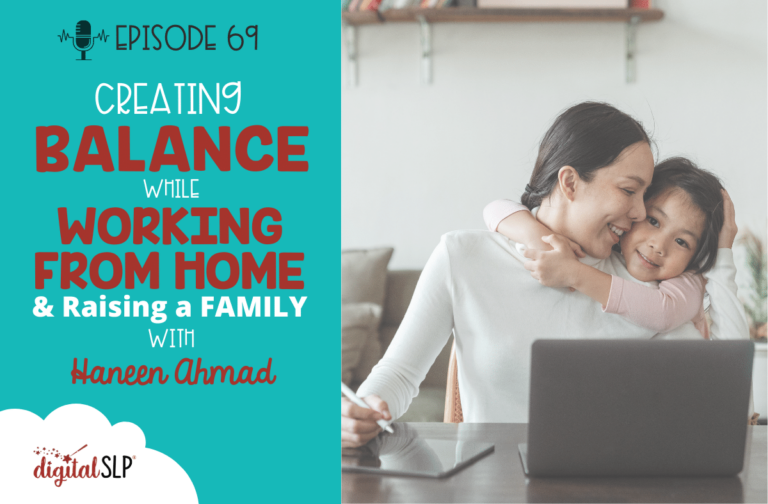
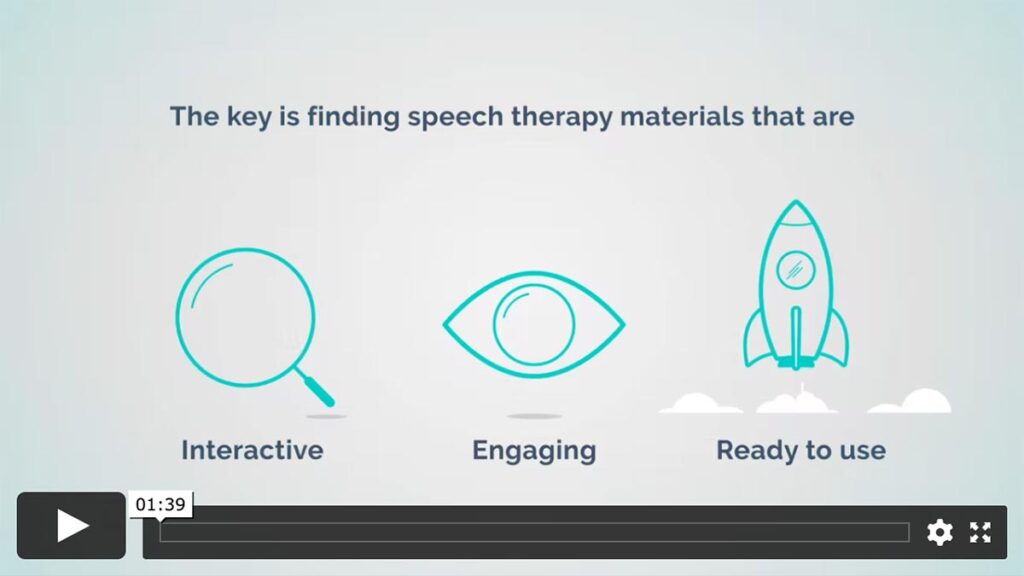
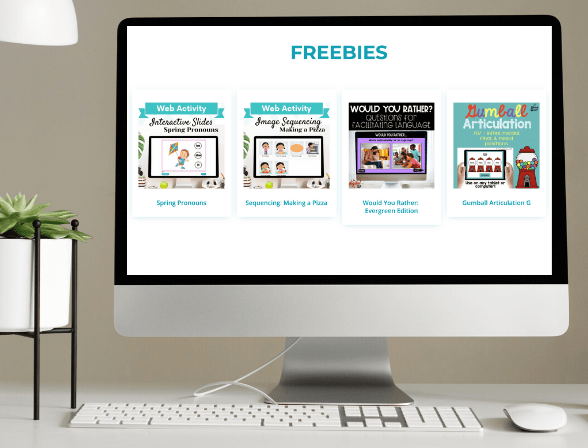

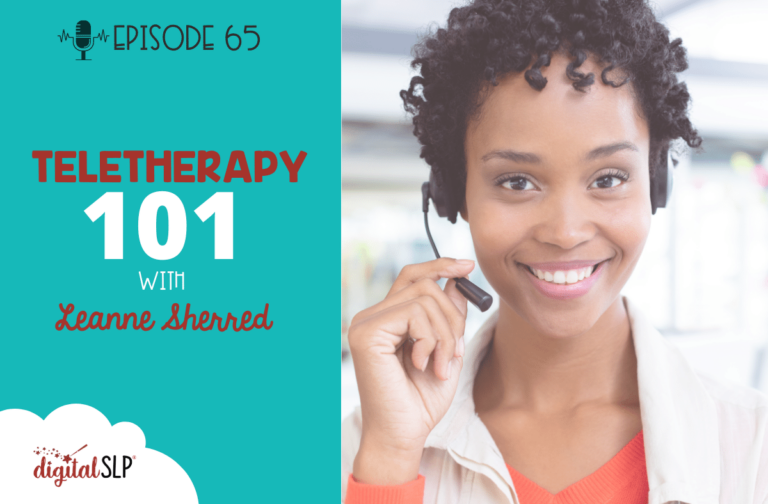
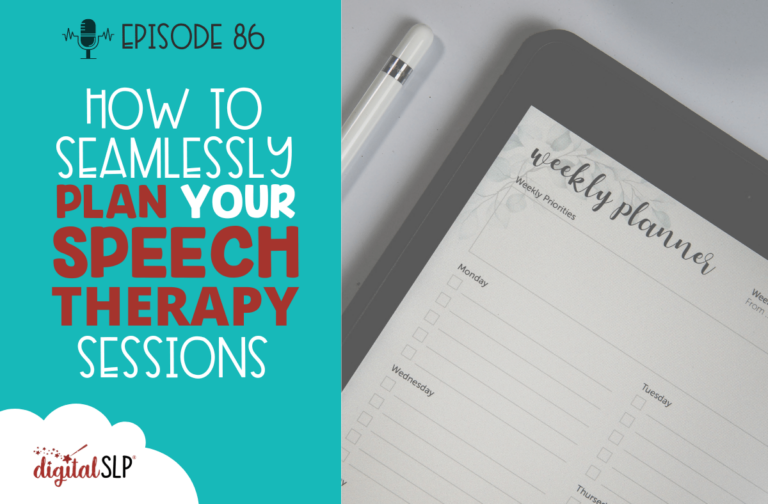

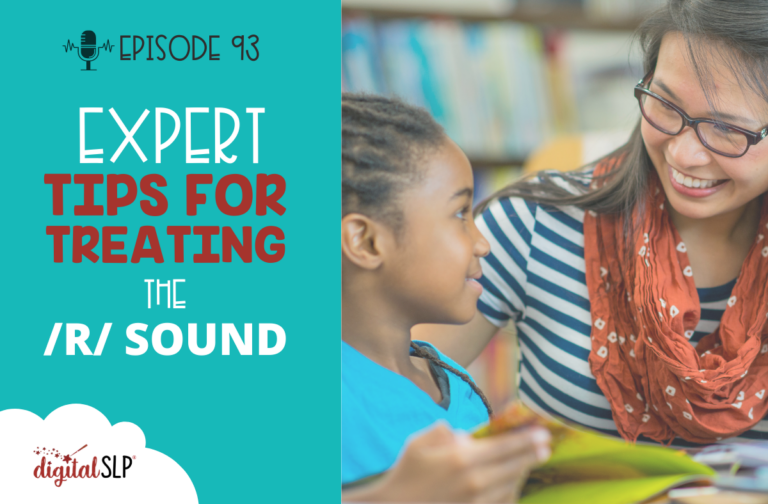
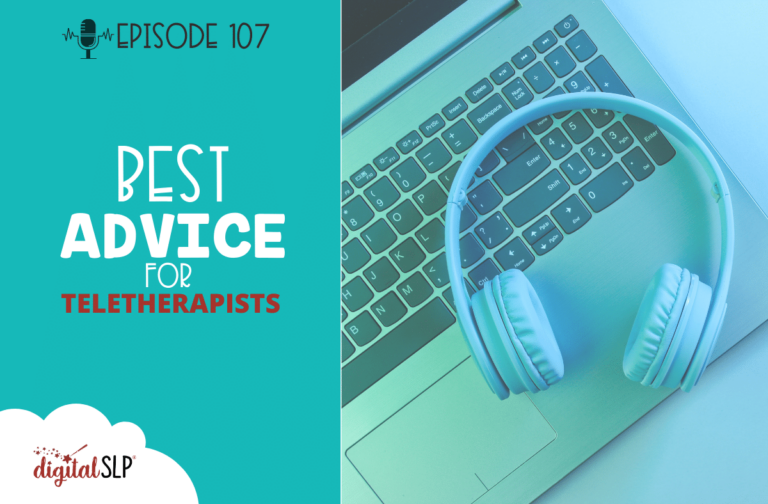
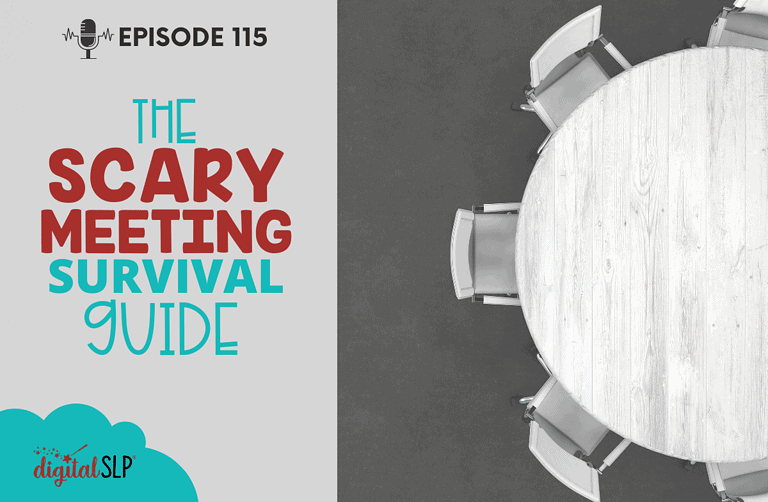

Recent Comments